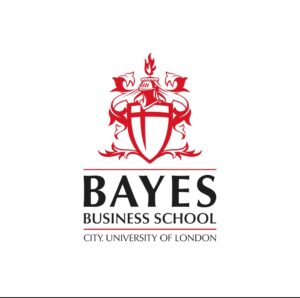Business School of City, University of London renamed as Bayes Business School
School formerly known as Cass Business School officially becomes Bayes Business School.
New Delhi: The Business School of City, University of London has been renamed as Bayes Business School ahead of the 2021/22 academic year.
In June 2020, there was increasing awareness of the links between Sir John Cass and the slave trade, which made the School, and its stakeholders, reflect on whether such a link was consistent with the School’s values. The School has decided that, in line with its values and principles, it needs to increase its focus on diversity, equity, and inclusion.
 The decision to select Bayes as the new name followed a comprehensive and transparent consultation process, which was carried out with staff, students, alumni and partners. Thomas Bayes was a theologian and mathematician who is best known for Bayes’ Theorem, which suggests that we get closer to the truth by constantly updating our beliefs in proportion to the weight of new evidence. It is this idea that is the motivation behind adopting this name.
The decision to select Bayes as the new name followed a comprehensive and transparent consultation process, which was carried out with staff, students, alumni and partners. Thomas Bayes was a theologian and mathematician who is best known for Bayes’ Theorem, which suggests that we get closer to the truth by constantly updating our beliefs in proportion to the weight of new evidence. It is this idea that is the motivation behind adopting this name.
Alongside the new name, Bayes Business School is addressing inequality and participation more widely. For example, over two thousand new students will undertake inclusive team working workshops as part of their induction. A complete curriculum review is underway to embed ethical and socially responsible values throughout, to ensure that Bayes educates professionals and business leaders who work towards building an equitable and sustainable future.
Bayes has also instituted a scholarship programme for Black UK-domiciled undergraduate students to widen participation. This will cover all tuition fees along with an annual stipend for ten students from the start of the 2022/23 academic year.
Professor Paolo Volpin, Dean, Bayes Business School (formerly Cass), said: “Inspired by Thomas Bayes’ ideas, our approach as Bayes Business School will be to have the courage to do things differently.”
“As a community, we will nurture diversity to stimulate new perspectives and learn from each other. On education, we will focus on teaching our students how to think rather than what to think. In our research, we will explore imaginative new angles, asking difficult questions to produce research that has ground-breaking impact on business, society and the environment.”
“In essence we will be always curious, always bold and always learning.”
Professor Anthony Finkelstein, President of City, University of London, said: “I am incredibly proud of the staff, students and alumni who have championed our collective values and have made a difficult change – exercising patience, sound judgment and practical sense. I would expect no less, but it is great to see.”
“Now we enter into the next phase of development of the Business School which will involve a deepening engagement with practice, the City of London and its professions, infused with the imagination and creative energy of Shoreditch and Clerkenwell.”
“As an institution, City is committed to seeing Bayes reinforce its position as a distinctive globally leading Business School.”
Ms Julia Palca, Chair of City’s Council, said: “The decision to rename the Business School marks the beginning of an exciting new chapter and is reflective of the values we hold as a University.
“It is an important part of our ongoing work to address racial inequality across City and we are committed to doing everything we can to ensure that we are a diverse and inclusive place to work and study.”
As part of its Diversity, Equity and Inclusion (DEI) strategy, Bayes established a Diversity and Inclusion Council in 2020 to lead across all aspects of its DEI work. It has also formed a Racial Equity and Inclusion Advisory Group, comprising students, faculty, professional staff and alumni from Black, Asian and Minority Ethnic (BAME*) backgrounds, who are working to improve student and staff progression and experience.
About Bayes Business School
Bayes Business School (formerly Cass) is a leading global business school driven by world-class knowledge, innovative education and a vibrant community. The School has been at the forefront of business education for more than 50 years, developing leaders who help businesses thrive through change and uncertainty.
Located in the heart of one of the world’s top financial centres, the School has strong links to both the City of London and the thriving entrepreneurial hub of Tech City.
The faculty members are experts in their fields, producing cutting-edge research with real-world impact. The last Research Excellence Framework results assessed 84 per cent of its research to be world-leading or internationally excellent.
The School is a signatory of the Principles of Responsible Management Education (PRME). It is home to the renowned ETHOS Centre for Responsible Enterprise,and the Centre for Charity Effectiveness, one of the UK’s leading non-profit and philanthropy centres.
The School educates nearly 4,000 students each year on globally renowned courses across all levels of study including undergraduate, postgraduate and Executive Education. On graduating, students join a strong alumni community of 50,000 from 160 countries.
The new name replaces Cass Business School. In June 2020, there was increasing awareness of the links between Sir John Cass and the slave trade, which made the School, and its stakeholders, reflect on whether such a link was consistent with the School’s values. The School decided that, in line with its values and principles, it should change its name and increase its focus on diversity, equity, and inclusion. Read more about Diversity, Equity, and Inclusion work at Bayes here.
The School had carried the Cass name between 2002 and 2020 after a donation from the Sir John Cass Foundation, an educational charity which has now been renamed The Portal Trust.
A short biography of Thomas Bayes and discussion of his theorem is available here.
The latest City, University of London Staff and Student Equality Monitoring Report (2019/20) is available here and includes reporting on ethnicity (section three, from page 12 onwards).
Additional background
Last year, the School appointed two Co-Directors for Racial Equity and Inclusion: Professor Lilian de Menezes, Professor of Decision Sciences and Ms Malla Pratt, Research Programmes Operations Manager.
PhD scholarships at City
City is funding five PhD scholarships for Black British students each year (one for each of City’s five Schools, including the Business School) and further details for all Schools will be announced shortly.
Undergraduate scholarships at the Business School
Addressing underrepresentation in the School is an issue of primary importance for Bayes. The School is launching a scholarship programme for Black UK-domiciled undergraduate students. This programme will run over a ten-year period and offer ten scholarships per year covering tuition fees (at home-fee level) and a £6,000 annual stipend for three years. It will accept applications starting this autumn for the 2022/23 academic year.
The total cost of the programme (amounting to about £5 million in total) will be funded from the School’s scholarship budget. The design of the scheme is deliberate to represent the amount of money that the School received from the Cass Foundation (now renamed the Portal Trust) in 2001. This programme is therefore aligned with the reparation principle set out as one recommendation of City’s Review of Historic Funding which reported in 2020.
The aim of the scholarship programme is to achieve greater racial diversity in the School, and respond to our different stakeholders, who have consistently expressed their belief that the money should be returned to the Cass Foundation. Further information is here.
School Inclusion Council
The School has formed an Inclusion Council to progress and oversee all aspects of the School’s DEI work. The Inclusion Council has 22 members from across the School.
Racial Equality and Inclusion Network (REIN)
This staff network has 50 members and aims to be a safe space for discussions related to race and inclusion within the BAME staff community. It is currently co-chaired by two professional staff and two academic staff members. Meetings take place monthly and are a platform for discussion of initiatives and for feedback on progress towards racial equity and inclusion.
Racial Equity and Inclusion Advisory Group (REIAG)
This group has 18 members, who were selected to represent the School’s community, inform strategy development and aid monitoring of the School’s progress towards greater racial equity and inclusion, through:
- Suggestions of actions, events, and other initiatives that can bring together the racially diverse community within the School;
- Championing Racial Equity and Inclusion (REI) initiatives in the School;
- The critical review of policies or actions that are proposed in future REI initiatives within the School;
- The scrutiny of data, evidence and reports relating to REI achievements within the School.
The Advisory Group meets once a term, and following the first meeting January 2021, two working groups were formed to focus on specific priorities – the Human Resource Management Working Group and the Student Working Group. It is also supporting the University’s Race Equality Charter application.
Equality, Diversity and Inclusion at City, University of London
City is applying for an institutional-level Bronze Award under Advance HE’s Race Equality Charter with a submission aimed for 2022. Since the launch of the EDI strategy in early 2020, City’s focus has now moved beyond gender inequalities, and recognises the importance of taking an anti-racist and intersectional approach to tackling organisational and educational inequalities that honour the nuanced differences of ethnic and intersectional diversity of our student and staff bodies. Since the summer of 2020, City has started moving away from thinking of equality, diversity and inclusion work as being an ‘add-on’ consideration and focused it on becoming a strategic priority that is embedded throughout the University. This will keep City in-step with the rest of the sector.
City is continuing work around student attainment, widening participation, decolonising its curriculum and is making progress with a historical review of its colonial past. Moving towards taking a disaggregated and nuanced, non-homogenous view is a space City is learning to embrace and employ. Cross-institutional partnerships with London Metropolitan University to deliver a mentoring program for staff of colour, by staff of colour, including partnering with Kent and Liverpool John Moore’s universities to deliver a ‘challenging racism’ webinars series and an Allyship development pilot programme are continuing. Reciprocal mentoring programmes within City have been running since 2019 and are undergoing evaluation for further development.
City has also conducted and analysed two surveys on the experiences of racism, discrimination and racial inequities for staff and students. Outcomes of these surveys are being explored to support further development of City’s Race Equality Action Plan.



